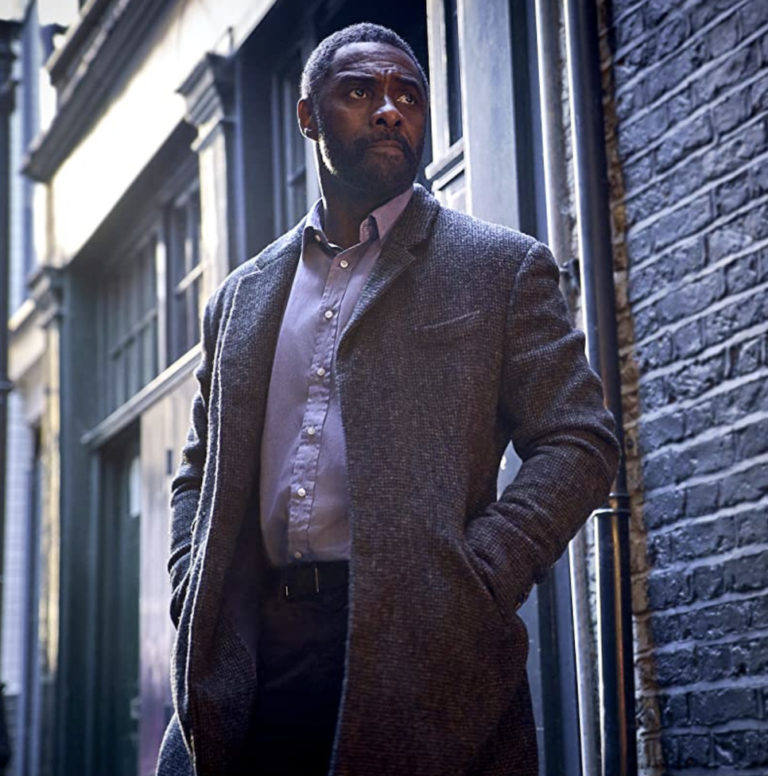
Idris Elba has shared that he no longer refers to himself as a Black actor, and doesn’t want his career achievements to be defined by his race. He feels the label put him in a box that restricted his acting and producing career trajectory. The performer further noted that the media’s obsession with race hinders actors’ aspirations and growth.
In an interview published Wednesday with Esquire UK, the English actor said that he’s a prominent member of the Black community. However, he feels that describing himself as a Black actor in Hollywood can hold him back as an entertainer.
“If we spent half the time not talking about the differences but the similarities between us, the entire planet would have a shift in the way we deal with each other,” Elba also said.
The performer added: “As humans, we are obsessed with race. And that obsession can really hinder people’s aspirations [and] growth.”
Elba is best known for his Golden Globe-winning portrayal of the titular DCI John Luther in the acclaimed BBC psychological crime thriller television series, Luther. He also played drug lord Stringer Bell on the Emmy-nominated HBO crime drama show, The Wire.
The 50-year-old Elba, who has become one of the UK’s most prominent acting talents over the past decade, has also appeared in such films as Thor, Avengers, The Jungle Book, Prometheus, Sonic The Hedgehog, Fast & Furious Presents: Hobbs & Shaw, Mandela: Long Walk to Freedom and The Suicide Squad.
The BAFTA Award-nominated actor stated that “racism is very real.” But also believes that “it’s only as powerful as you allow it to be…I stopped describing myself as a Black actor when I realized it put me in a box. We’ve got to grow…Our skin is no more than that: it’s just skin. Rant over.”
Elba also discussed his reasons for pursuing a career in entertainment in the interview. He noted that it was never to break barriers as a Black man.
Instead, “I did it because I thought that’s a great profession and I could do a good job at it,” the Emmy-nominated actor explained. “As you get up the ladder, you get asked what it’s like to be the first Black to do this or that. Well, it’s the same as it would be if I were white. It’s the first time for me. I don’t want to be the first Black. I’m the first Idris.”
Elba has reiterated his statement since his fans began debating his comments on social media. In a tweet, he explained: “There isn’t a soul on this earth that can question whether I consider myself a Black man or not. Being an actor is a profession, like being an architect; they are not defined by race.
“However, if you define your work by your race, that is your prerogative. Ah lie?,” the actor added.
Fellow British actor John Boyega shared his thoughts on Elba’s statement after another Twitter user wrote: “He’s not wrong…Many Black and POC actors have talked about being typecasted into stereotypical roles because of their race.”
Boyega, who made a name for himself in Star Wars‘ recent sequel trilogy, replied: “I think we should fixate on who is typecasting and putting actors in boxes because of this…We continuously focus on what we have to do so they don’t do this or that. Very worrying. We Black and that’s that.”
In his interview, Elba also discussed the difference in attitudes towards race between the U.S. and UK. “Of course, I’m a member of the Black community. You say a prominent one. But when I go to America, I’m a prominent member of the British community,” he said.
The actor added: “If we spent half the time not talking about the differences but the similarities between us, the entire planet would have a shift in the way we deal with each other.’”
after the success of Netflix’s acclaimed, Emmy-nominated historical fiction-romance television series, Bridgerton, Elba also said that he’s interested in taking on non-stereotypical roles such as period dramas.
The performer will next be seen in the Netflix crime thriller film, Luther: The Fallen Sun, the big screen follow-up to the television show. It’s scheduled to be released in theaters on February 24.

